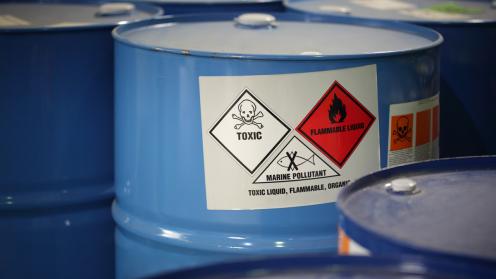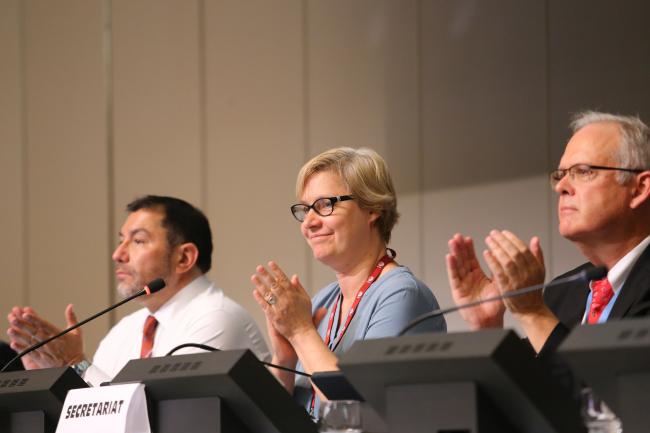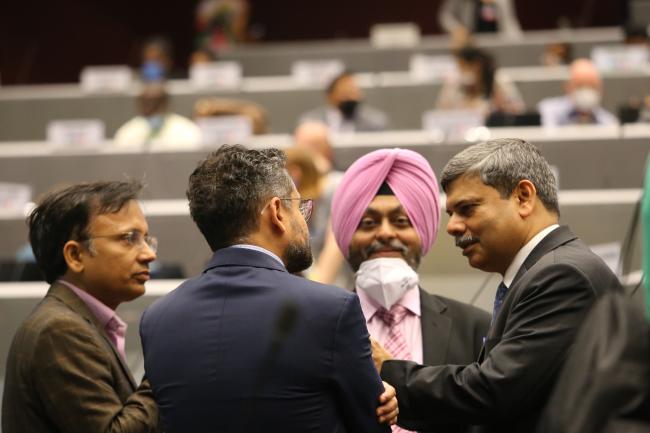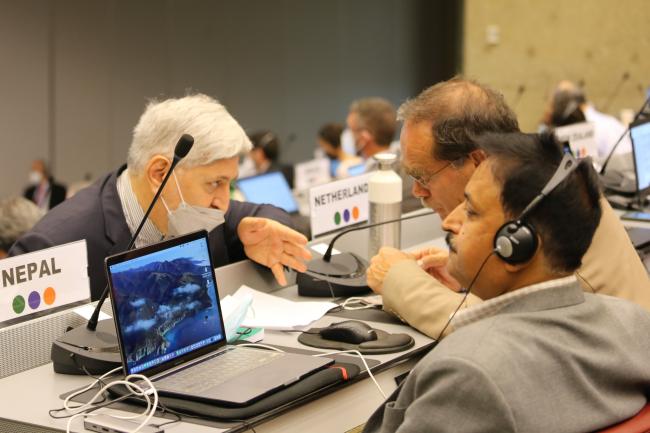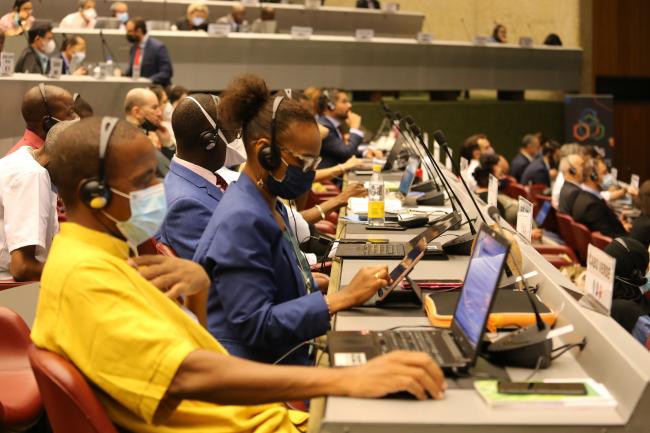On the penultimate day, parties continued to make steady progress, adopting seven substantive decisions. The budget and the Rotterdam Convention’s (RC) compliance mechanism remain unresolved. Delegates working on these issues could be seen near the Presidents’ offices as they tried to find common ground.
Want to dive deeper on today's talks? Read the full Earth Negotiations Bulletin daily report.
Some long-standing stalemates will endure to at least the next meeting of the COPs. The Rotterdam Convention adopted a decision on listing substances in Annex III to the Convention, which would subject chemicals to the prior informed consent procedure. The decision acknowledged ongoing lack of consensus on listing fenthion, paraquat, acetochlor, carbosulfan, and chrysotile asbestos. A proposal by one country, supported by three others, to end discussions of chrysotile asbestos found little other support.
The Stockholm Convention (SC) COP also had to admit that parties were unable to reach agreement on the compliance mechanism. The Convention, adopted in 2001 and entered into force in 2004, calls for a compliance mechanism to be established. Over ten COPs, consensus has proved elusive. A few times, the compliance mechanism seemed within reach, but some noted that it now seems further away than ever.
The Basel Convention (BC) COP adopted a decision on its strategic framework that will help build the foundations for parties to learn from past experiences when setting up a new framework to guide action. The BC COP also adopted a decision on the e-waste technical guidelines. These guidelines were previously provisionally adopted, because countries have struggled to work out how to manage e-wastes that are exported for recovery or re-use. This is a legal activity, but owing to the increasingly short lifespans of many electronics, they can quickly end up as wastes in landfills and endanger health and the environment.
Countries adopted decisions that will continue work on cooperation and coordination with other international organizations, especially with bodies like the World Health Organization, and on illegal trade. This last decision is key to help combat the underground waste trade that often leads to the dumping of hazardous chemicals and wastes in developing countries.
The EU completed its technical consultations on the effectiveness of the Rotterdam Convention, having met with all other regional groups. In side events, delegates explored the role of the forthcoming science-policy interface in strengthening the implementation of the BRS Conventions. Another event laid out why all this matters, because children are often disproportionately affected by exposure to pesticides and other hazardous chemicals.
To receive free coverage of global environmental events delivered to your inbox, subscribe to the ENB Update newsletter.
All ENB photos are free to use with attribution. For photos please use: Photo by IISD/ENB | Angeles Estrada Vigil
